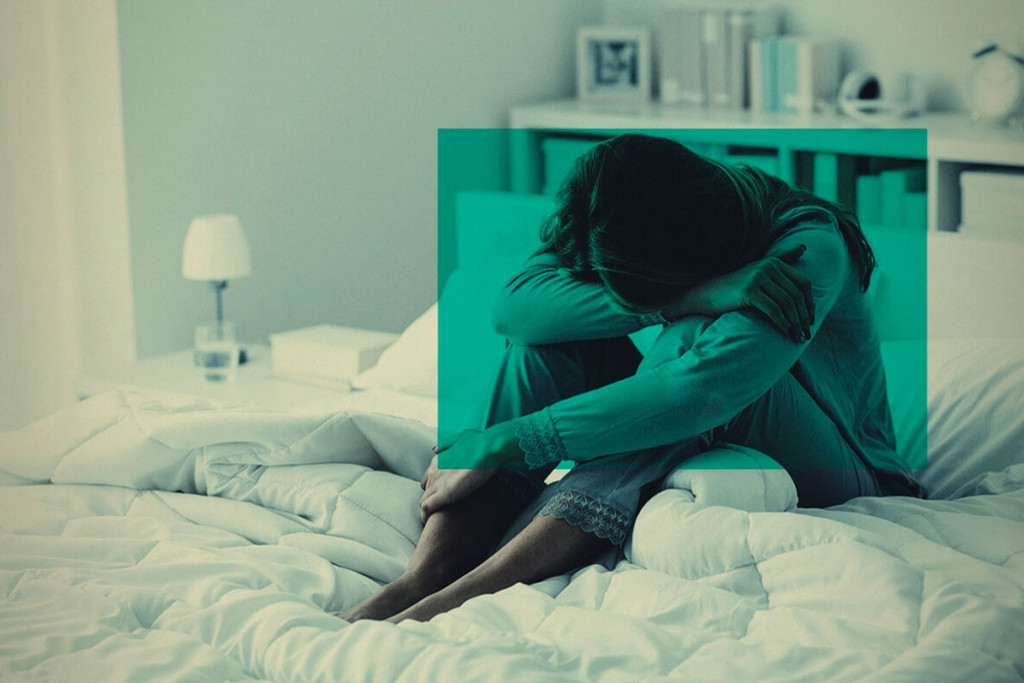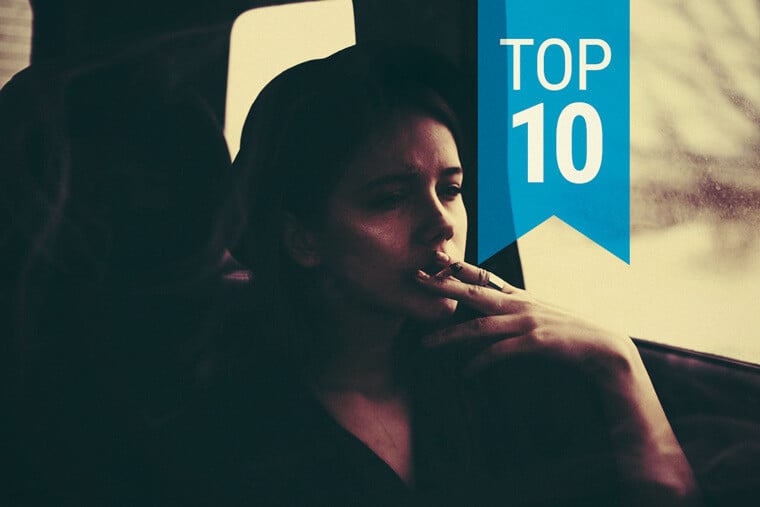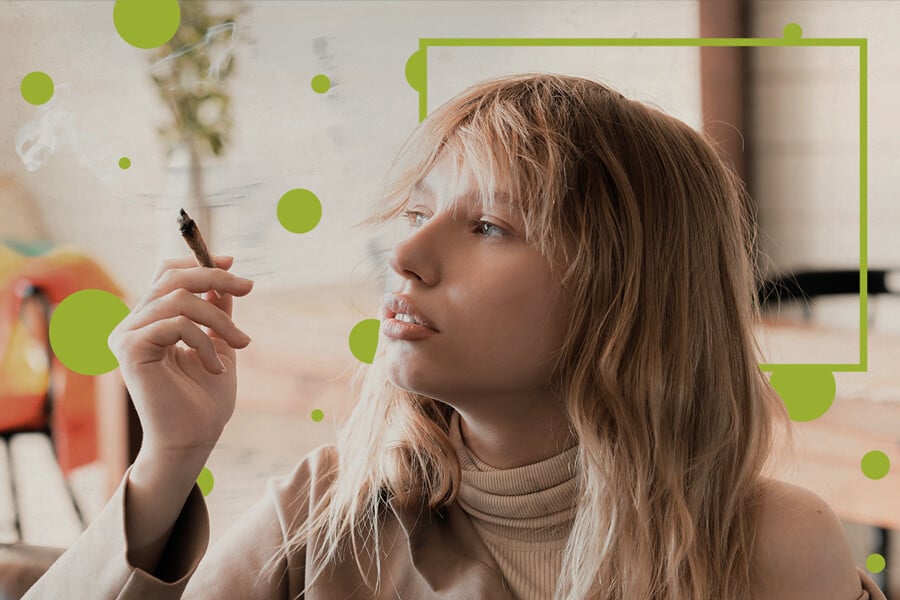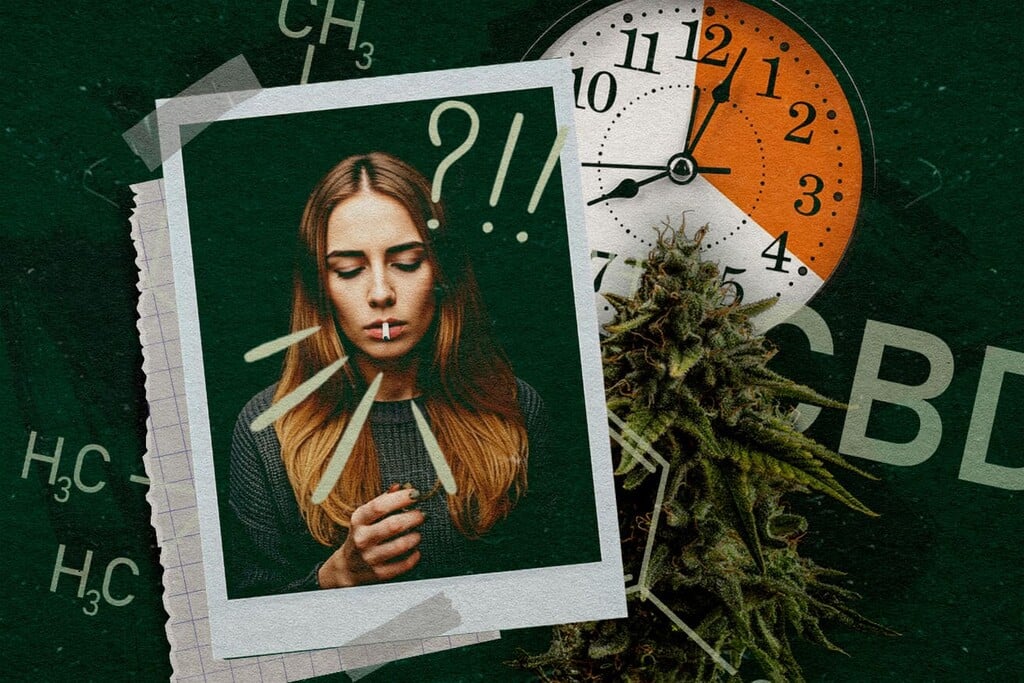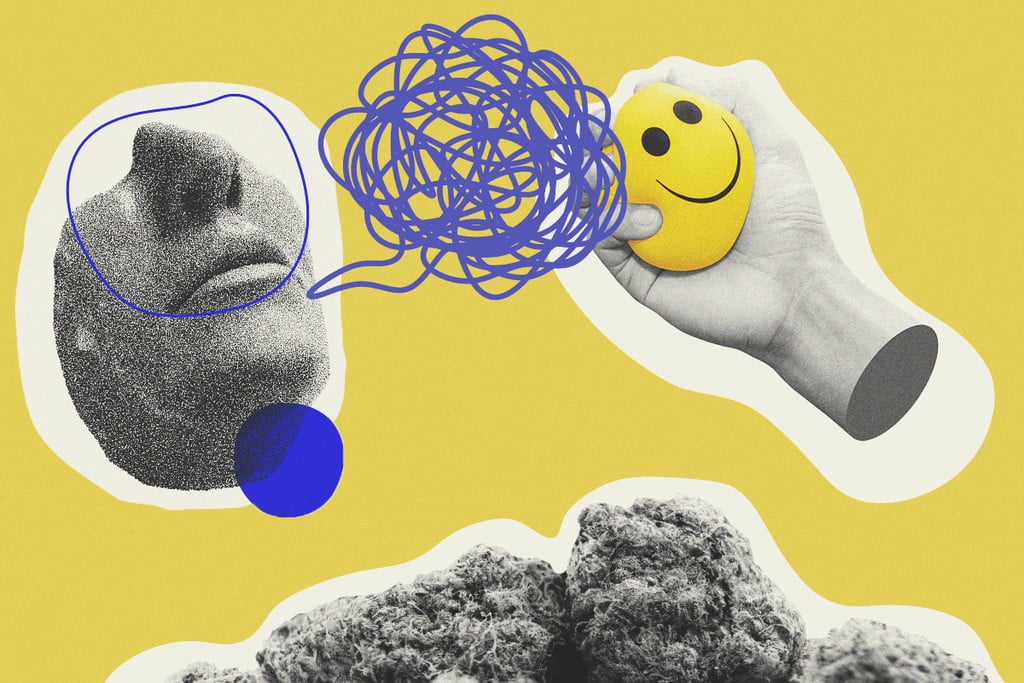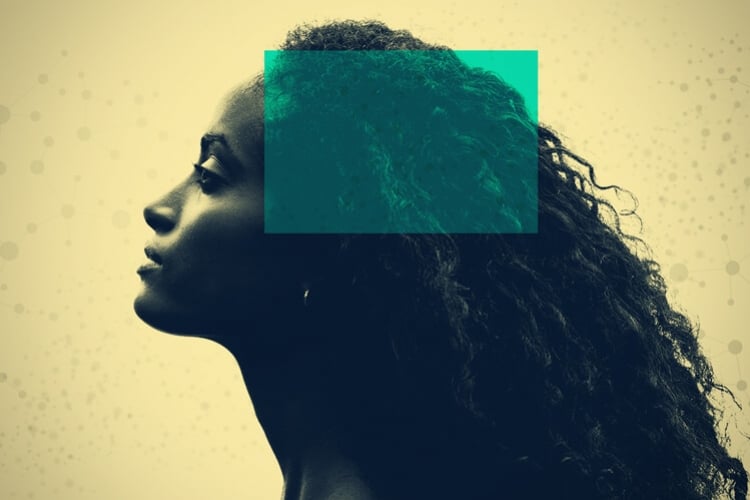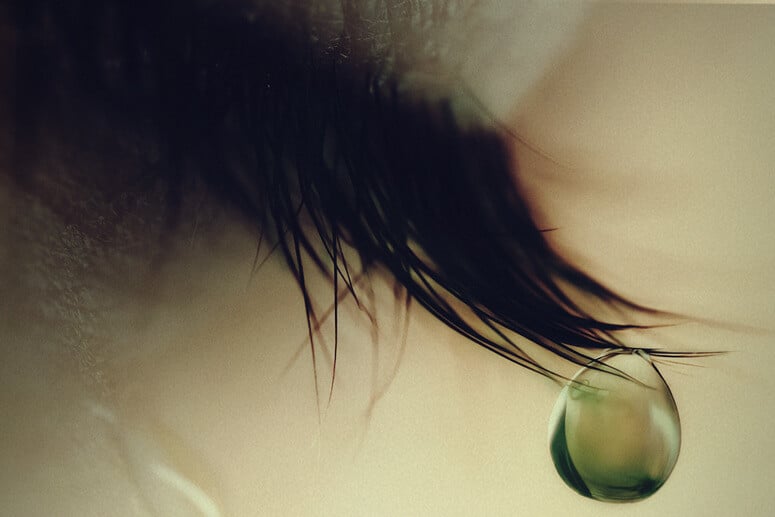.
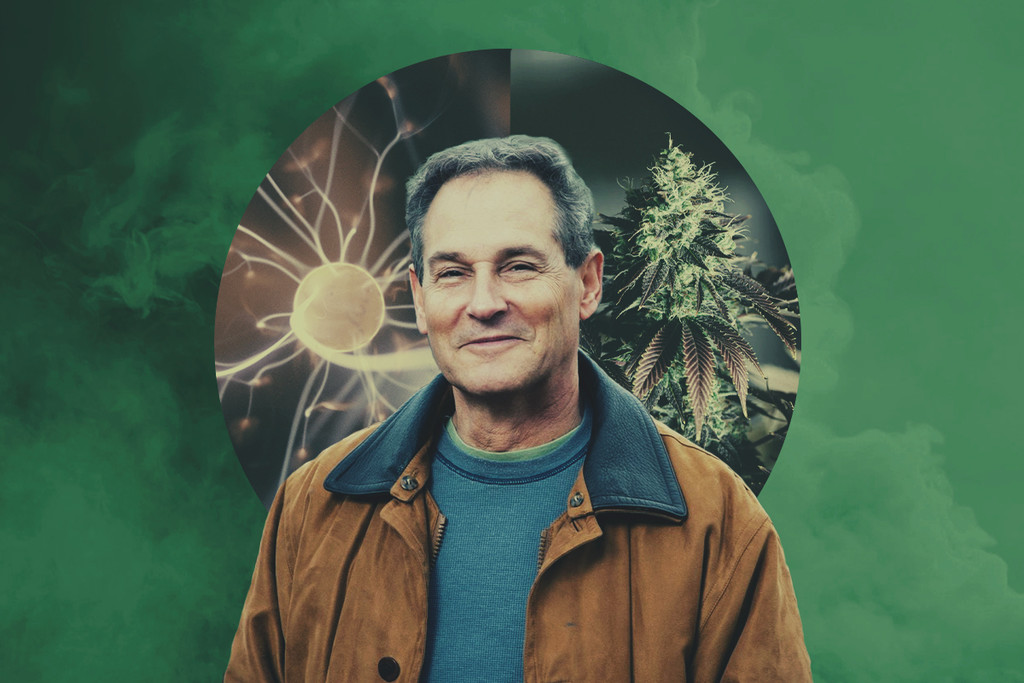
RQS Interviews: Martin A Lee on How Cannabis Affects the Brain
Hello! My name is Martin A. Lee. I’m the co-founder and director of Project CBD, a nonprofit site that promotes research into CBD and its medical use. I’m also a prolific writer, and my most recent book is called “Smoke Signals: A Social History of Marijuana”. I’ve been featured in numerous publications, including the Washington Post, Harper's, Rolling Stone, and more.
How do cannabinoids act in the brain? Does the US government hold a patent for cannabinoids? Can cannabis treat addiction and depression? How do THC and CBD differ? Take a deep dive into cannabis pharmacology and discover the answers to these questions and many more, with author and Project CBD director Martin A Lee.
1. What are the benefits of cannabinoids for our brain?
Interestingly, a research paper published in 1998 examined both CBD (cannabidiol) and THC (tetrahydrocannabinol) for their neuroprotective and antioxidant properties. This research was actually conducted by four scientists funded by the US government, including a Nobel Prize-winning scientist. And it was concluded that both THC and CBD were powerful neuroprotectants and antioxidants, meaning they actually protected the brain against degeneration and other assaults. This research then became the basis for a patent registered by the US government.
Keep in mind, this patent refers to both CBD and THC. This has been somewhat misleadingly represented by the CBD industry, which typically refers to the patent as CBD-exclusive. That's not the case, and it’s crucial to realise that the highest authorities in the US government (in terms of the medical establishment) understand that both THC and CBD are actually very good for the brain. In fact, they specifically mention their protective capabilities against all sorts of neurodegenerative diseases, including Alzheimer's, dementia, and multiple sclerosis.
What's interesting is that this modern research actually validates ancient wisdom going back 5,000 years in China, where cannabis was part of the medical pharmacopoeia and considered one of the “supreme elixirs of immortality”. That doesn't mean cannabis will make you live forever, but as it was understood in ancient China, cannabis conferred longevity—essentially, it protected against dementia. And this is explicitly stated in ancient Chinese medical texts, so there is a convergence of modern science and ancient wisdom.
And I'm actually very comfortable with that—I think it's a good indication that there's something really going on here. So, contrary to a lot of scary stories about marijuana harming the brain and all this, it's actually quite the opposite. That's not to say one could smoke or take as much as they want and not experience any negative side effects, but it's not harmful for the brain in the way, for example, that alcohol might be to the liver. It doesn't degenerate brain cells. Quite the opposite.
2. Is there any difference between THC and CBD in this regard?
What researchers have found is that CBD and THC are both what scientists refer to as neurogenic compounds, meaning they actually stimulate the creation of new brain cells in adults. Neurogenesis is something that happens before we’re even born, when the child's brain is being formed in the womb. And though this process slows down considerably after birth, it continues to some degree throughout one's lifetime. When one reaches old age, though, it can slow down dramatically.
This slow-down of neurogenesis is associated with clinical depression, which is where CBD and THC come into play. Part of the reason these cannabinoids have antidepressant properties is because they stimulate the creation of new brain cells in the hippocampus. Again, this is not far-off stoner mythology—this is real science that is not controversial within the scientific community. But unfortunately, what happens in the scientific world often stays there and doesn’t permeate the general public. So we still have a lot of myths about reefer madness and the supposed harm caused by marijuana that continue to burden us culturally.
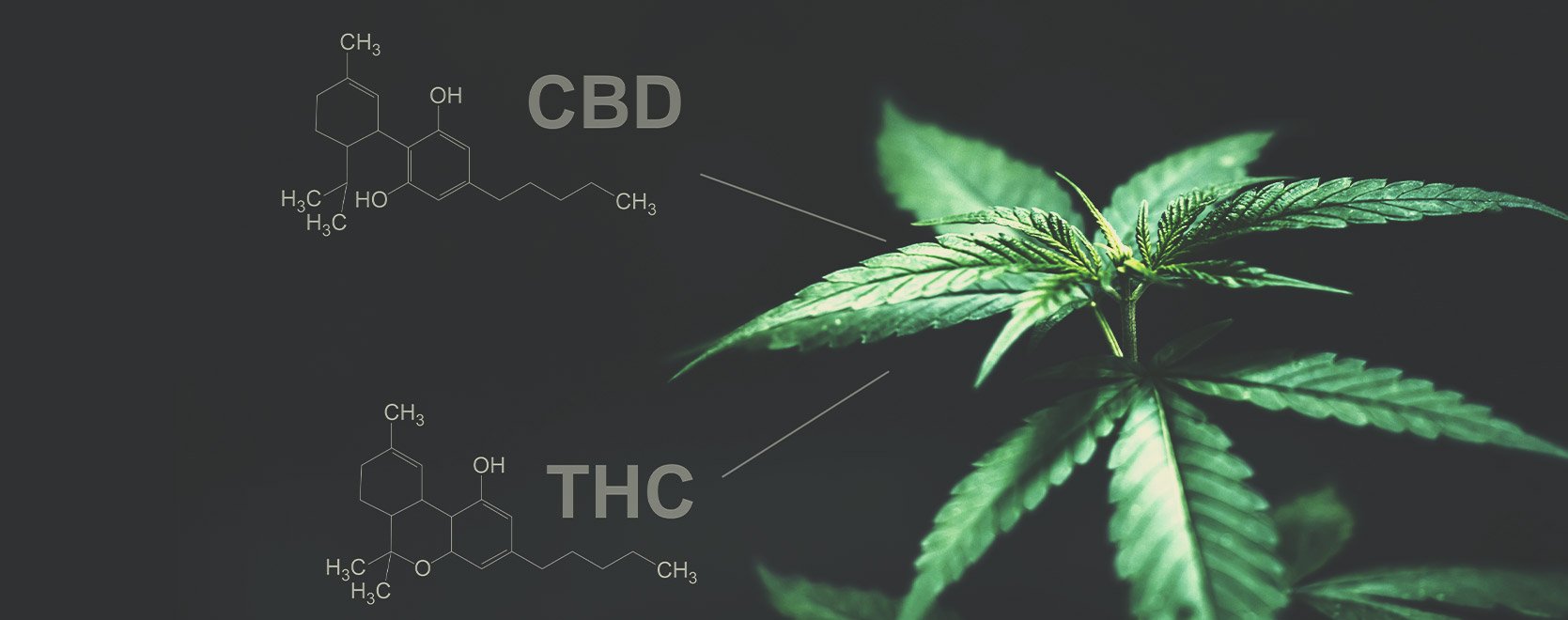
3. What are the main compounds in cannabis that can help to treat addictive behaviours, trauma, and clinical depression?
All three conditions: trauma, clinical depression, and addictive behaviours are tied to a lack of neurogenesis, or issues associated with the hippocampus. When it's not functioning properly, it can be associated with various diseases, particularly alcoholism, and so forth. What's interesting is that, going back to the 1950s, research into psychedelic drugs, particularly LSD, has shown promise for trauma, addiction, and depression.
There's a reason for that, and it’s what scientists refer to as the endocannabinoid system. This system regulates a wide range of physiological processes implicated in all three of these conditions, and cannabinoids like CBD and THC interact with it to produce many of their effects. Psychedelic drugs work in part through that same mechanism.
Addiction is very, very complicated and difficult. With respect to CBD and addiction, one area that's been of interest to scientists recently has to do with CBD’s ability to potentially modify environmental memory. What I mean by environmental memory is; say you’re involved with an addictive substance, and you go to rehab. You come out clean, but then you go back to the same environment in which the addiction took root. This environmental memory is enough to trigger relapse in lots of users.
"Forgetting is an essential part of human health. If we remembered every single thing that happened to us from the moment we get up in the morning to when we go to sleep at night, we’d go mad."
4. What is the function of THC and CBD in this field?
What CBD seems to do, at least according to animal studies, is break the association between the addiction and a certain place. So it has an anti-addictive property in that regard.
There's been quite a bit of animal research on cocaine addiction, amphetamine, alcohol, and even habitual marijuana use. That's a whole other discussion, because some of the research is really kind of crazy, but it shows that CBD could be helpful. But again, this research has been primarily focused on animals, and you can't necessarily jump from animal studies to people and assume that the same thing will happen.
But at Project CBD, we hear anecdotally that CBD is helpful for addictive situations. Obviously, opioid addiction is a major problem. And for that, it's not just CBD that can be helpful, but THC too. Because, if you're dealing with opioid addiction, it probably started when you were prescribed them to deal with some sort of pain. Unfortunately, opioids don't really target chronic pain very well, and so one can get into a very vicious cycle where they're taking more and more, and then people experience fatal overdoses.
And I think this is another area where cannabinoids like CBD and THC can be helpful, because what we understand to be the case is that, when combined with opioids, THC lowers the amount one needs to achieve the same results, in terms of the pain-killing properties. So if you could take something with your opioid regimen that would reduce the necessary dose, yet still deliver the same effect, that will lower the odds of a fatal overdose. And that's a very positive thing in and of itself. There's actually a considerable amount of research on this, some of which we've published on projectcbd.org.
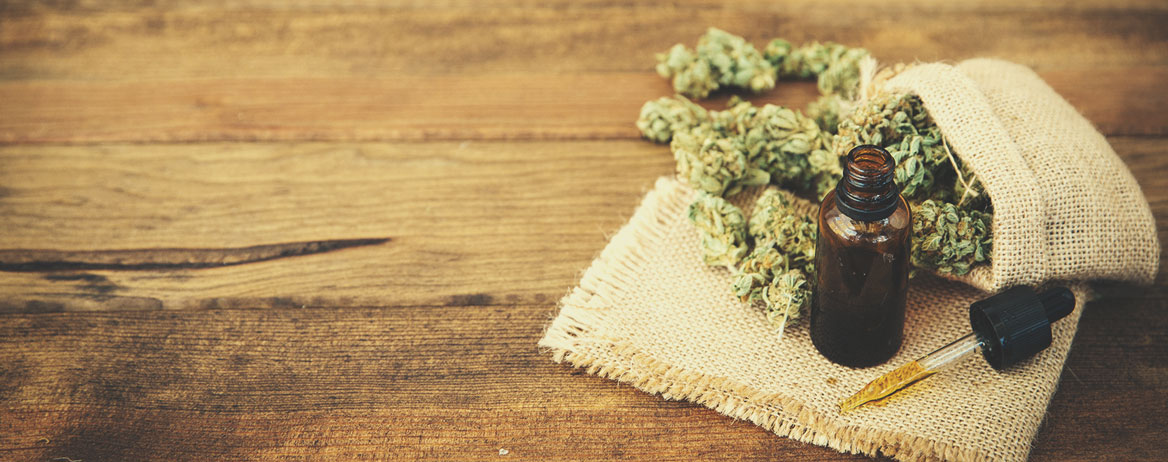
5. What happens if we combine opioids with cannabis?
As mentioned, cannabis combined with opioids has the effect of lowering the amount needed to experience analgesia (pain-killing effects). I should say, this is the tip of the iceberg when it comes to addiction and cannabinoids. You also mentioned depression and trauma; these are things we could talk about for hours—individually, and in reference to one another, as they’re all related.
Typically, if you're dealing with PTSD, oftentimes you're also dealing with depression. We know this from soldiers returning from combat zones, suffering from these terrible memories of what they saw, what they did, and what they experienced. Going back to the Vietnam War days, the soldiers came back and were smoking weed, claiming it was the only thing that helped. Drugs given to them by doctors didn’t seem to help much, and if anything just spurred their addiction to pharmaceuticals. But a few puffs of weed seemed to put the trauma into remission, at least temporarily.
There's been a good amount of research on trauma and cannabinoids. One study I found quite fascinating, which underscores the potential of cannabinoid therapy for PTSD, was conducted by Canadian scientists not too long after 9/11, when the World Trade Centre buildings were destroyed in lower Manhattan. It’s a pretty crowded neighbourhood, and the researchers found 50 people in the area who were awake when the towers went down. About half of the people expressed PTSD, whereas the other half had an easier time processing the events.
From here, the scientists performed studies on the actual brain chemistry of the participants—both the PTSD and non-PTSD groups—and found all of the PTSD sufferers to have very low levels of endogenous cannabinoids. In addition to the cannabinoids from plants, we produce our own cannabinoids. These are very important compounds that keep us balanced and healthy. And when you have low levels of these endogenous compounds, it makes you vulnerable to all sorts of diseases.
Low levels of endogenous cannabinoids have been linked to alcoholism, PTSD, autism in children, and clinical depression. So there we have a scientific understanding of why cannabis, or cannabinoid therapy, would be helpful for both trauma and depression. That's an example that really underscores that quite vividly. Because, in terms of the World Trade Centre experiment, none of the non-PTSD group exhibited low levels of endogenous cannabinoids.
When asked to describe what the endocannabinoid system is responsible for, an Italian scientist by the name of Vincenzo Di Marzo says, “five things: eat, sleep, relax, protect, and forget”. That it's involved in regulating eating, sleeping, relaxing, and protection (as we’ve already spoken about) all makes sense. But forgetting, that is an interesting pick, as it doesn’t necessarily sound good. But if you think about it, forgetting is an essential part of human health.
If we remembered every single thing that happened to us from the moment we get up in the morning to when we go to sleep at night, we’d go mad. We have to forget things—that's part of being healthy; to remember what we need to remember, and forget what we need to forget. Unfortunately, people who suffer from PTSD can't forget the things they need to forget. They can't let go of these traumatic memories. And it's the endocannabinoid system that regulates memory and forgetting, which is why maintaining its health is so important. Luckily, this can be done by using cannabis, exercising, achieving good sleep, and maintaining a good diet.
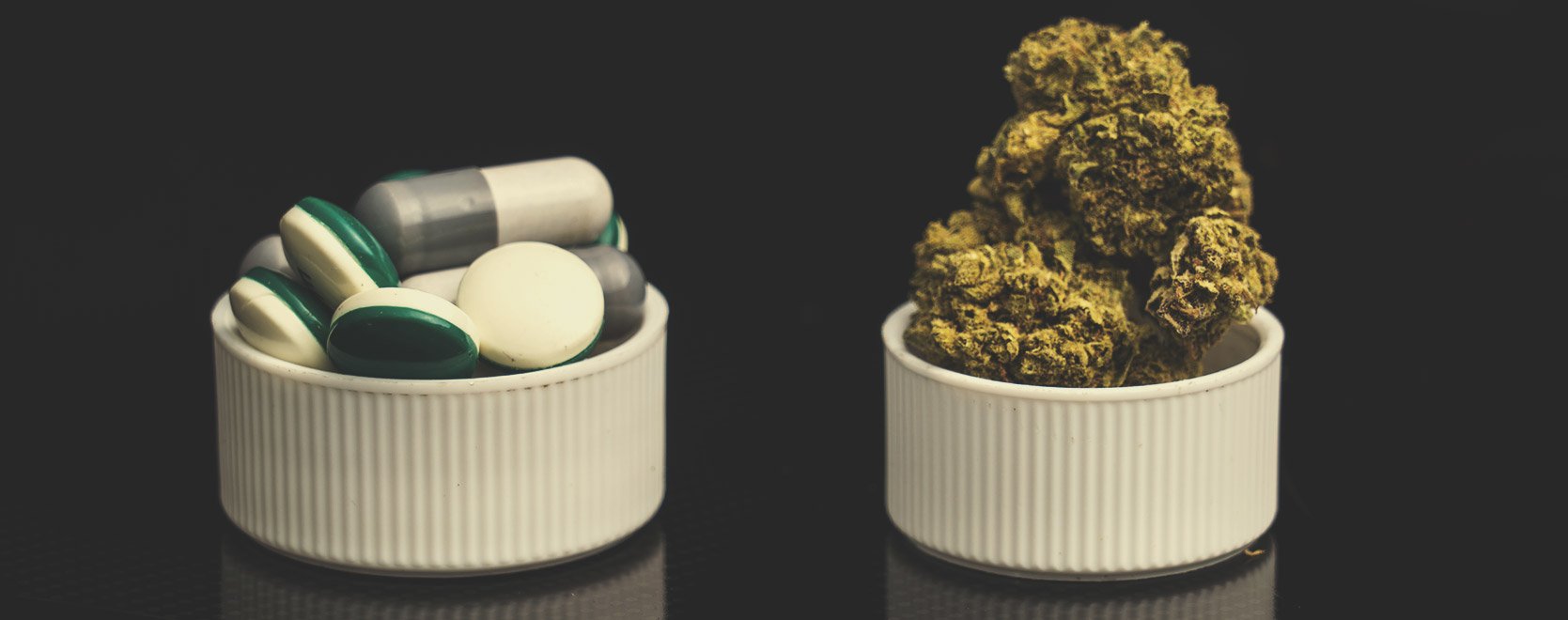
6. For which specific treatments is cannabis being investigated?
Cannabis has been investigated for quite a few different treatments at this point. Keep in mind that the research world is strangely split when it comes to cannabis. You have a lot of preclinical research—literally tens of thousands of studies have involved cannabis or cannabinoids. I can tell you all about what cannabis does to a mouse. But there's also a lot of anecdotal reports, particularly since medical cannabis was legalized in California in 1996, among other states and countries.
Now, we're getting increasing reports from people saying, “This is how it helps me, this is how it doesn’t”. So we have a lot of preclinical research, we have a lot of anecdotal reports from people; where it's missing is the clinical research to “prove” that it works.
In the medical world, the gold standard is the double-blind randomised controlled trial. And it’s true that you can get very important information from that kind of experimentation. But frankly, I don't necessarily think that's the most optimal way to judge the effectiveness of cannabis, because it's like trying to fit a square peg into a round hole. You're getting the gold standard, which gives you some concrete data about efficacy, but I'm not sure it's the best lens through which to see how cannabis works.
I can tell you in terms of CBD-rich cannabis, and by that I mean cannabis that includes a significant amount of both CBD and THC, we hear from people at Project CBD that they’ve found success using it for three main conditions: pain, depression, and anxiety—particularly the latter. And that speaks to the difficulties of the modern world. There's so much anxiety, not just because of the pandemic, but from all sorts of anxiety-provoking stimuli and experiences.
And CBD, in particular, could be quite good for that. THC could be very relaxing as well, but the mild euphoria it causes could incite dysphoria in some people, which may be unpleasant. But with CBD, it doesn't induce dysphoria or euphoria. I wouldn't say that CBD is non-psychoactive, because it can affect one's mood. If it can lift one’s depression or ease anxiety, it’s psychoactive. But CBD is non-intoxicating, and in fact can actually reduce some of THC’s intoxicating effects.
The interaction between CBD and THC is really important to understand. Cannabis has been referred to by Raphael Mechoulam, the great Israeli scientist who's done so much important research, as a medicinal treasure trove. It has a lot of compounds in it. You can think of CBD and THC as the crown jewels of that trove. They work best together. It might sound odd to say, but THC actually makes CBD safer. People might think that's a real head-scratcher because CBD is already very safe and doesn’t get you high. But where you can get into trouble is combining high doses of CBD with pharmaceuticals.

7. Is there any difference between how CBD and THC interact with pharmaceuticals?
CBD interacts with the majority of approved pharmaceuticals, which can be a dangerous or helpful relationship, depending on the situation. But when you combine CBD with even a little bit of THC, the amount of CBD necessary to achieve a therapeutic effect is much lower. And if you're taking less CBD, there’s less likelihood of problematic interactions.
You can also reverse this and say CBD makes THC safer. I mean, generally speaking, people have limits with THC. It sort of has its own guard rails. If you eat an edible and get too high, you know you've overdone it a bit. Or maybe a lot. So let’s say around 10 milligrams of THC is a healthy dose for a normal person. But when you're talking about CBD, people sometimes take up to 500 milligrams a day. So the point here is that drug interactions with THC are less likely because you're taking much smaller doses of the cannabinoid.
But the interesting thing that scientists have found is that, when performing research on animals with gut disorders—e.g. colitis, Crohn’s—small, subclinical doses of THC are ineffective in isolation, but very effective when combined with CBD. The problem for some people is that using THC individually gets them too high, but if you combine it with CBD, it lowers the amount needed and can tone down the psychotropic effect a bit. So they really work together. We call them the power couple of cannabis.
8. Can we physically notice if we’re developing neuronal atrophy or depression because of cannabis?
It's not likely one would develop neuronal atrophy from using cannabis. First off, neuronal atrophy is essentially a slowdown of the neurogenesis process. As you get older, the brain stops producing new stem cells in the way it needs to. As a result, again, neuronal atrophy is often associated with clinical depression.
So, if one is feeling depressed, they’re more likely to reach for cannabis to elevate their mood. Then it’s easy for an outsider to misinterpret cannabis as causing neuronal atrophy, as opposed to treating it or relieving it in some way.
I would even call this perspective a myth. It’s sort of a holdover from reefer madness and the charges levelled against cannabis. The thing is, if you're already demotivated, you're likely to reach for cannabis. And it might contribute to your condition, but it’s not causing the lack of motivation.
I would say the same for allegations that cannabis causes schizophrenia. Full-blown schizophrenia usually emerges among people in their twenties, but there's a period before that where schizophrenia is evident but not fully expressed. It's called a prodromal period, which can be very anxiety-ridden among sufferers, making them more likely to use cannabis to ease stress. And so people can of course interpret cannabis as the culprit behind the eventual expression of their schizophrenia.
We’re talking about difficult situations with individuals who you might say are abusing cannabis—e.g. a young person smoking from morning till night, their social interactions are suffering, their school is suffering—but is cannabis the problem, or are there other problems the cannabis is shielding? Because that's what a person seeks out to comfort themselves. I think there might be better ways to get out of a rut; exercising regularly, for example, actually stimulates neurogenesis, as does eating certain kinds of food. So it's not just cannabinoids that do that, or psychedelic drugs for that matter.
So we have to look at these things carefully. We shouldn't make light of someone's difficulties. And whether they're using cannabis or not, it's important not to confuse the issue and scapegoat cannabis when there's really other issues at play. “Cannabis use disorder” is a phrase I don't use very often because I think it's one of these medical phrases that’s been concocted to make cannabis the culprit of other issues.

9. What are the main risks of cannabis exposure in early life?
People definitely have fears about exposing a young person to cannabis or smoking before they’re twenty-five when the brain is more mature. But I think that’s a bit misleading. The brain is always developing. It doesn’t stop when you’re five years old, or twenty-five. But it does slow down. So we don't recommend that people use cannabis when they're young. But that’s ultimately up to the young person in question to decide. Teenagers experience stress, and cannabis is very useful for stress. And it’s safer than a lot of the alternatives.
The problem is the law more than anything else. That said, there are some downsides to using cannabis, as there is for anything. I don't think there’s danger of it causing schizophrenia or rotting of the brain, but there are still some things to consider. First of all, if you use cannabis regularly, keep in mind it is an herb. And herbs can be what's referred to as astringent, which basically means they dry the body. Some herbs moisten the body, some herbs heat the body, some herbs cool the body. Well, cannabis dries the body. Regular smokers know cotton mouth all too well. So if you're going to use cannabis on a regular basis, be sure to hydrate—that's one thing. The other thing is, cannabis has the effect of slightly lowering one's blood pressure.
Now, in really high-paced industrial societies, if anything, people are having a problem with high blood pressure. So cannabis, in that sense, is very helpful. But some people have the opposite issue. And if you use a substance that lowers blood pressure when you're already dealing with that condition, the odds are you probably won't enjoy the experience very much.
But one has to be aware of those kinds of things. This is serious. This is complex. The herb has many different physiological effects, and we can't assume these are always going to be positive. So those are just two examples. But the idea that it's going to hurt a person's brain? No. Will it always be a positive force in someone’s life? Not necessarily. Are there times when someone should probably give it a rest and lay off a bit? Sure.
There's a meme that goes around: “I'm in a relationship with cannabis”. I've always liked that, because I think the model of a real relationship isn't static. When you start a romantic relationship, it’s really exciting at first, and then it morphs into a different kind of relationship. Things are always developing, and the relationship requires checking in to see how you’re feeling. This is more or less the same with cannabis.
I'm not saying it should be a substitute for romantic relationships or friendships. If anything, cannabis can help to build relationships. It's a community-building botanical. But you should always check in to make sure cannabis is working for you as well as it did in the past. If you’re feeling burnt out and not getting as high as you once did, maybe take a little tolerance break. Don't use it for a couple of days. Press the reset button.
Dr Dustin Sulak talks about this, the need to sensitise oneself to cannabis. If you’re a chronic user, which we don’t judge either way, many people do find taking a little break to really enhance the experience when they get back to it. Or, if you're using high-THC cannabis with very little CBD, try a strain with a mix of both CBD and THC, and you might be very pleasantly surprised. What CBD does is lower THC’s psychotropic ceiling, meaning you don’t get as high. But it also lengthens the duration of the experience, so you're high for a longer period. So you can play around with that—it's another aspect of the relationship with the plant. And in that sense, it's not static.
"Teenagers experience stress, and cannabis is very useful for stress. And it’s safer than a lot of the alternative."
10. How can we incorporate medical cannabis into our lives if we’ve never consumed it before?
I think that's one of the gifts of CBD. It’s an easy door to walk through if you're just entering the cannabis world, for many reasons. Because of the stigma associated with cannabis, a lot of people would have never thought to use CBD. But then they hear this buzz about the cannabinoid and find out they don’t have to smoke the plant or get high to experience its benefits. You can consume cannabis for therapeutic purposes, or for any purpose for that matter. The key factor really is influenced by the ratio of CBD and THC.
CBD is not intoxicating, and it can neutralise the intoxicating effects of THC, depending on how much of each is in a given product. If there's an equal amount of both, you will get high from it, trust me on that. And that's typically how cannabis used to be—equal amounts of CBD and THC—until years of selective breeding focused on maxing-out THC content. A lot of people enjoy these high-octane strains, and I do as well. But one shouldn’t necessarily forego the opportunity to try a more balanced strain.
CBD is also a really good entry point for beginners, though I’d always recommend having some THC in there to enhance the effects. If it’s a very small amount, it won’t get you high, but it will still benefit you. When experimenting with cannabis, as they say, start low and go slow. And increase slowly. But there's another part of that saying; it's “start low, go slow. But don't be afraid to go all the way”. Indeed, sometimes you need more to get the effects you're looking for. And even among those who swear they don’t want to get high, perhaps when they start experimenting, they do get a little high, and then they come to find out they enjoy the experience. In this way, CBD can be a gateway to THC, but not in a harmful way—because it's not harmful. It can be very, very helpful. And the high part of it can also have intrinsic therapeutic value.


























